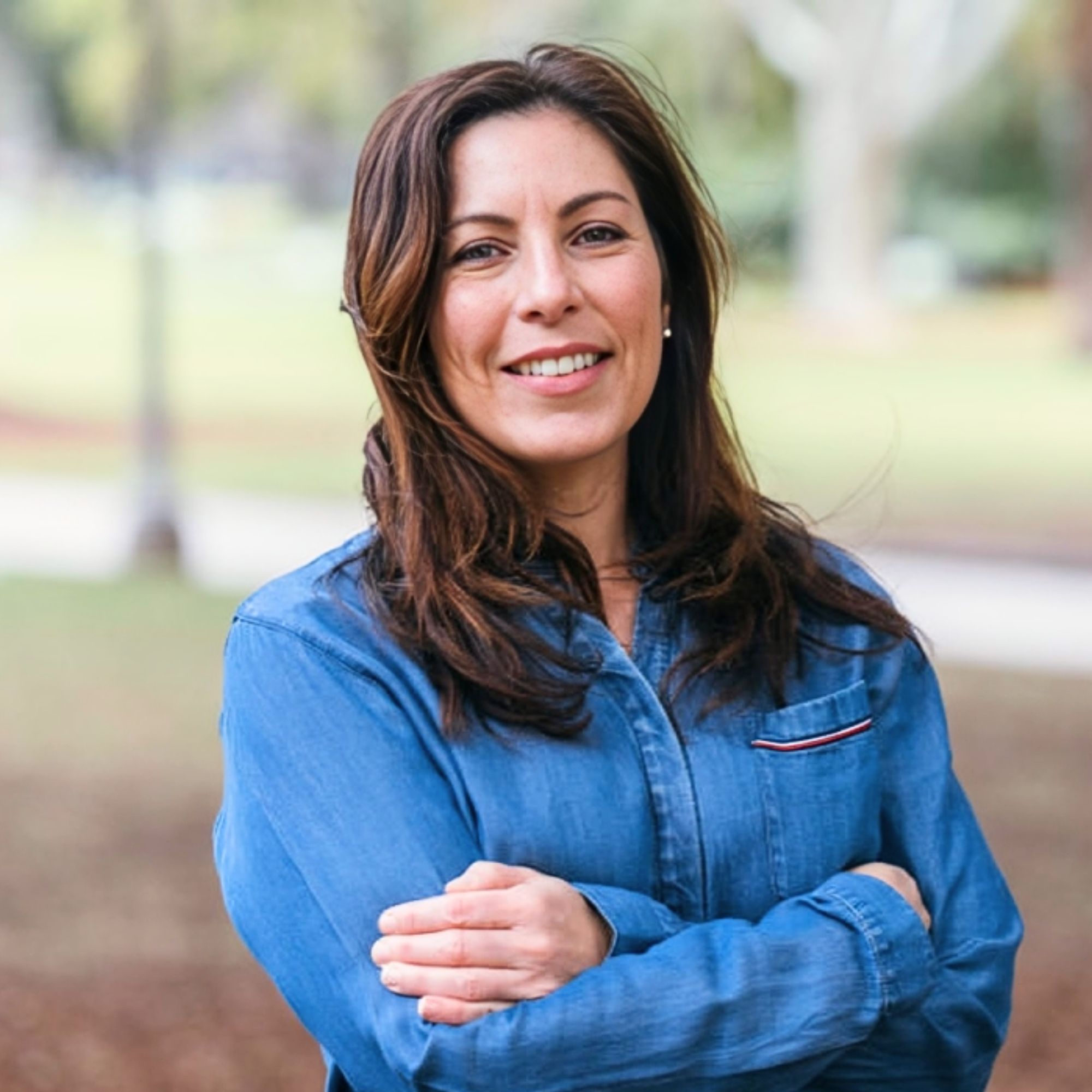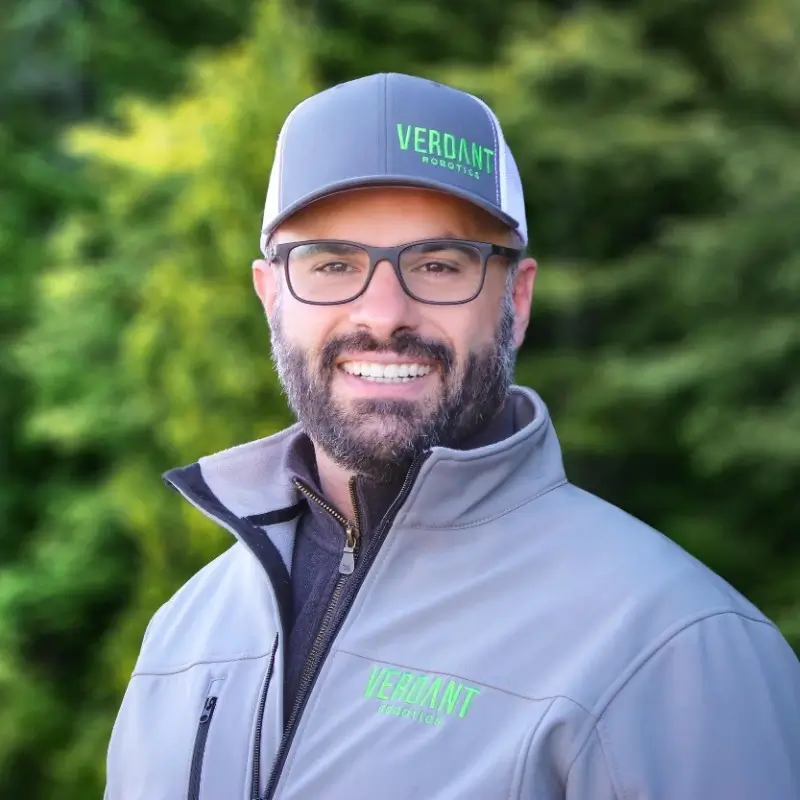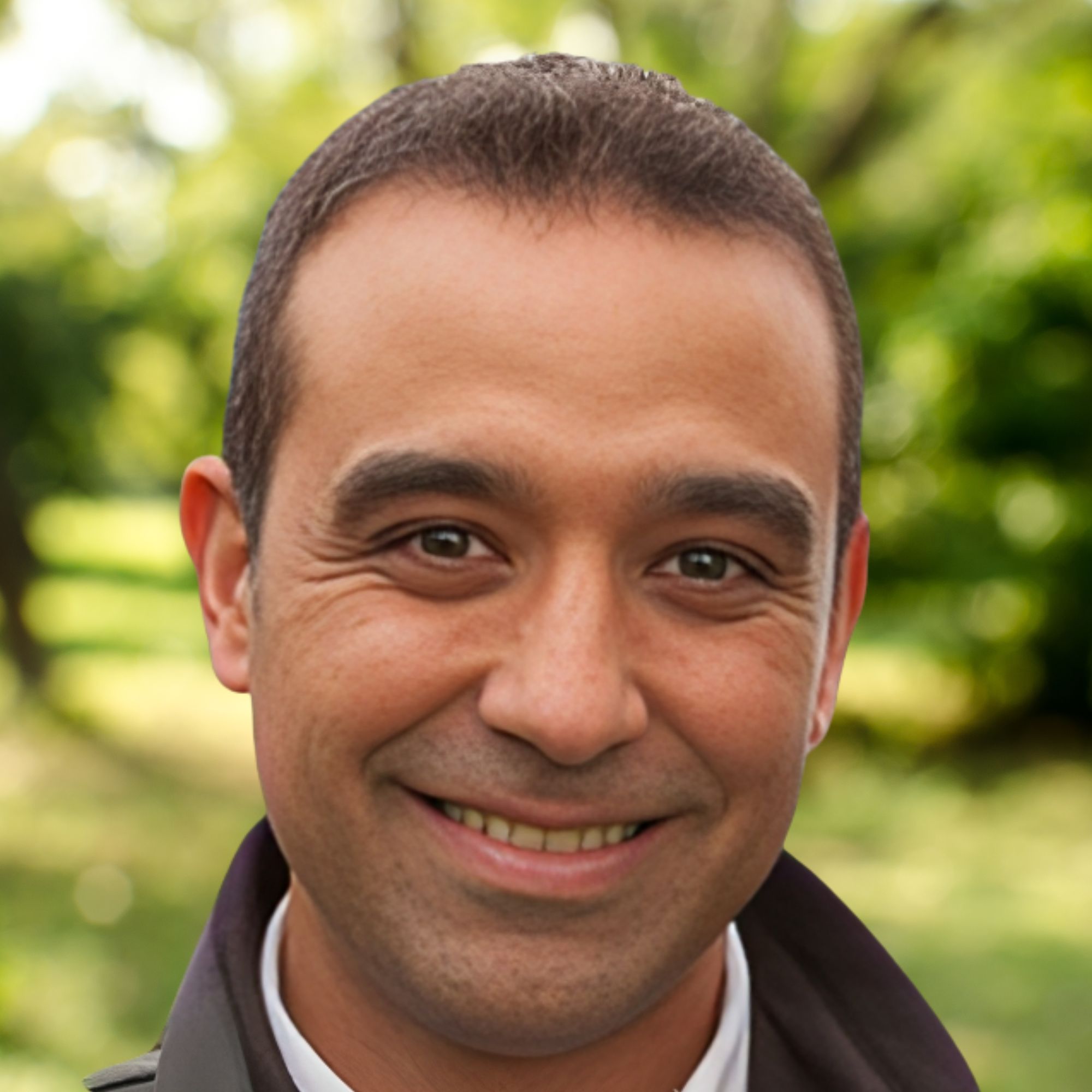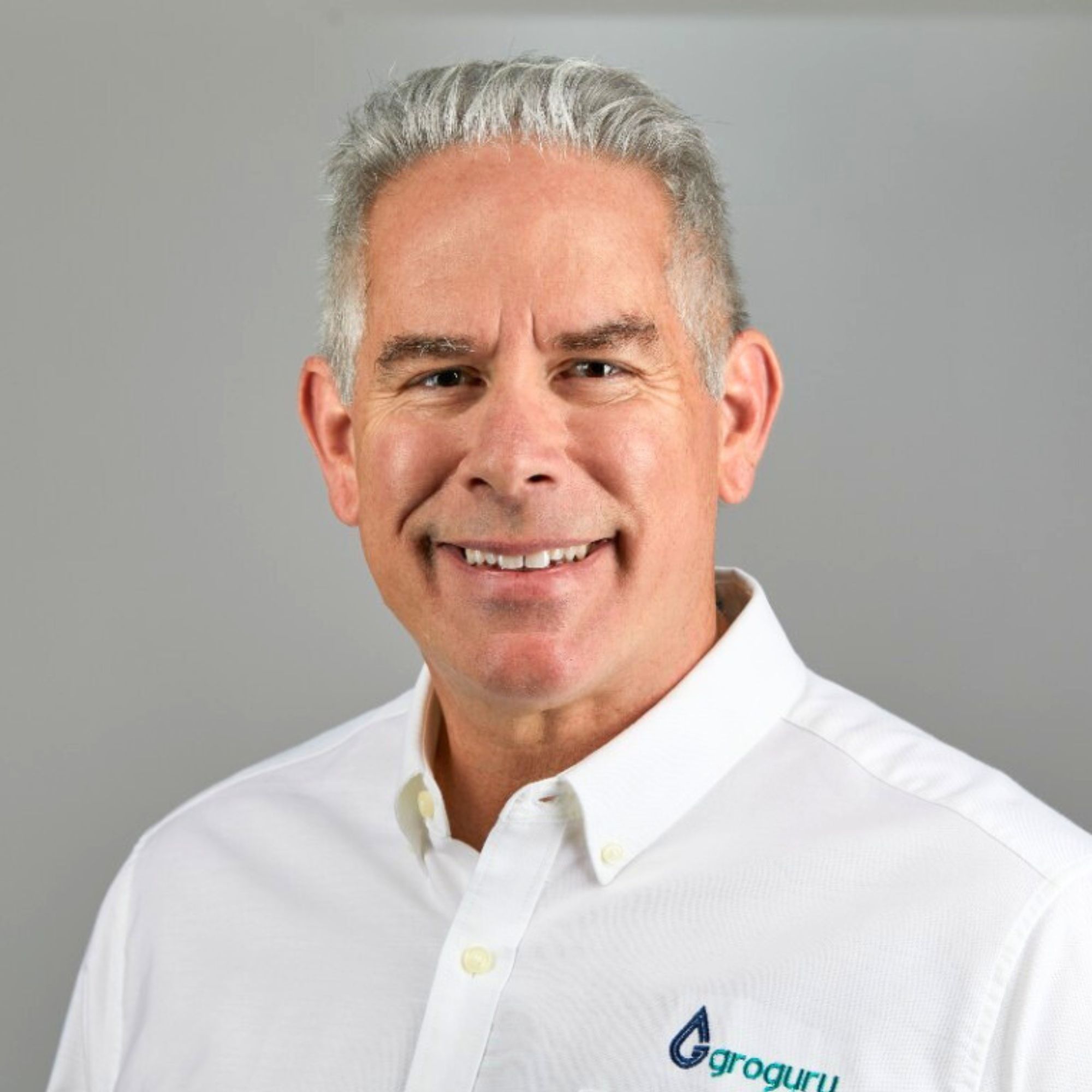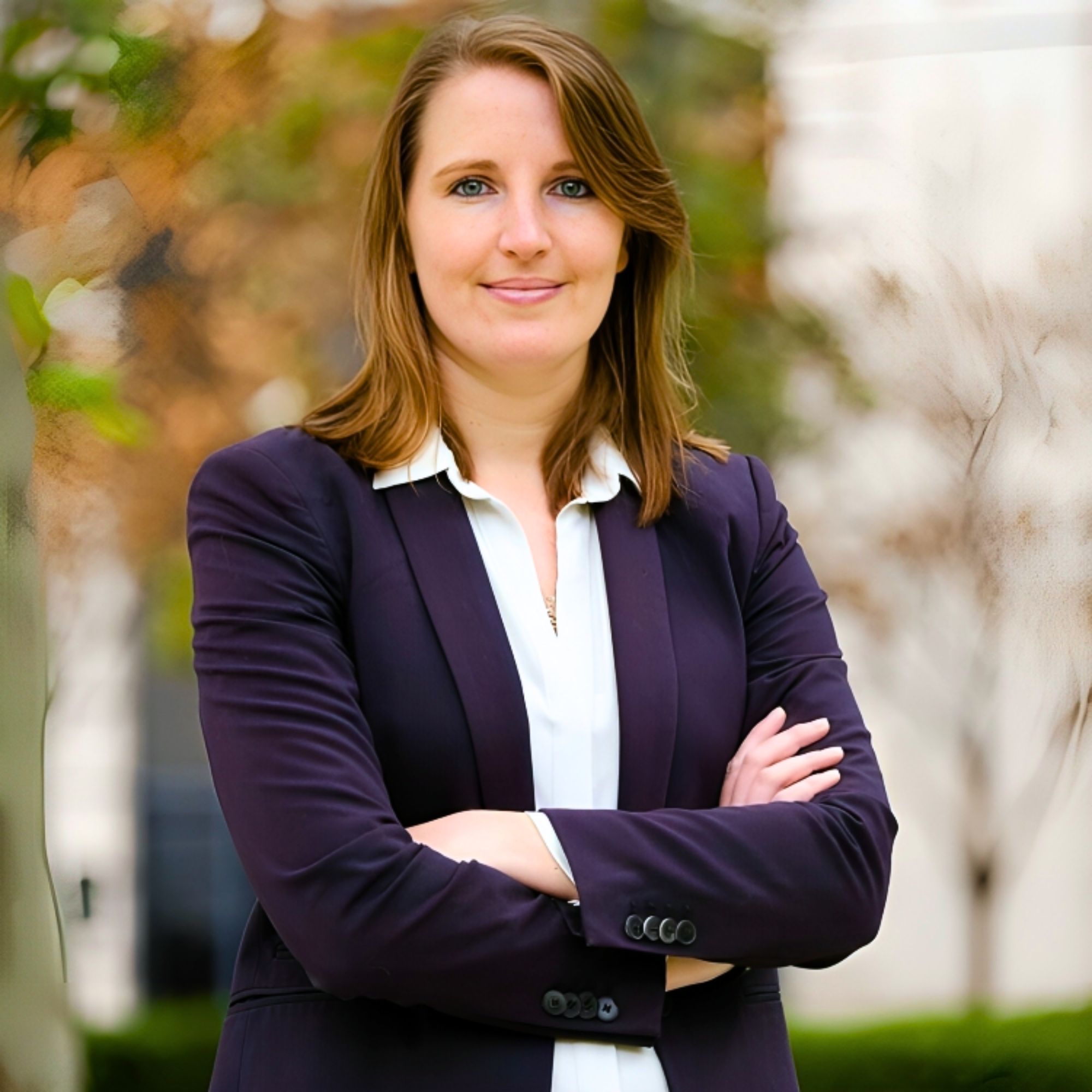Ready to build your own Founder-Led Growth engine? Book a Strategy Call

Frontlines.io | Where B2B Founders Talk GTM.
Strategic Communications Advisory For Visionary Founders
Actionable
Takeaways
Follow market pull, not your assumptions:
Ryp Labs initially targeted US and European markets, assuming these large, developed markets would be most receptive. However, they found no traction because established players had been "doing the same thing for 50 years" and were resistant to change. When they pivoted to Central and South America, they discovered customers who were highly motivated to export internationally and faced significant cold chain breaks. Moody explained, "We ended up completely shifting our go to market strategy to focus on those areas... they are highly motivated to ship their fruit internationally and to export it to the US or to Europe, because that's where they can get much higher prices." B2B founders should test multiple markets and follow where customers are genuinely desperate for solutions, not where they think the biggest opportunity exists.
Use trade shows and competitions as unfair advantages:
Ryp Labs leveraged their "fun and easy to comprehend" technology to win numerous competitions and secure organic media coverage. Moody noted, "We have almost unfair competitive advantage that it's such a fun technology and such an easy technology to comprehend. So we won a lot of those competitions and awards and that gives us free advertisement." For deep-tech startups with limited marketing budgets, industry competitions and trade shows can provide disproportionate exposure and credibility. B2B founders should identify events where their technology's unique aspects can create memorable impressions.
Break the engineer's pencil at the right moment:
Despite his team's protests that the product wasn't ready, Moody made the critical decision to ship to a major retailer in 2021. "All right guys, we've taken it as far as we can right now. We just got to put it out there and put it in a customer's hand... we'll learn if it doesn't work." This decision provided the validation and momentum needed to continue development. B2B founders in deep-tech must balance perfectionism with market feedback - sometimes shipping an imperfect product to the right customer is more valuable than months of additional development.
Target the most centralized part of the supply chain:
Ryp Labs initially considered selling directly to consumers but recognized the variability in handling would create inconsistent results and blame on their technology. Instead, they focused on distributors and packing houses where "all 1 million pack of strawberries is going from the farm into 2 degrees C" with predictable transportation conditions. This centralized approach allows them to "sell a million stickers to a distributor as opposed to going to 100,000 customers and selling them 10 stickers each." B2B founders should identify the most controlled and centralized points in their target industry's value chain.
Design for regulatory constraints from day one:
Coming from the medical device industry, Moody applied a crucial lesson: "You don't develop a technology and then go back and look at the regulatory process... You have to look at that on the front end, really understand what the requirements are going to be from a safety standpoint, and then develop the product to meet those requirements." This approach enabled Ryp Labs to achieve OMRI listing for organic produce and use only food-grade compounds already recognized as safe by the FDA. B2B founders should map regulatory requirements early and design their technology to meet these constraints rather than retrofitting compliance later.
Conversation
Highlights
When Perfect Becomes the Enemy of Progress: How Ryp Labs Found Success by Shipping Too Early
Every minute, enough food is wasted globally to feed over 1 million people for a day. If food waste were a country, it would be the third-largest producer of greenhouse gases behind the US and China. Yet for decades, the agriculture industry has relied on the same handful of solutions: refrigeration, fungicides, and a ripening inhibitor called 1-MCP that’s been around since the 1990s.
In a recent episode of Category Visionaries, Moody Soliman, CEO and co-founder of Ryp Labs, shared how his ag-tech startup is tackling this massive problem with an unlikely solution: stickers infused with natural plant compounds that extend produce shelf life. But the real story isn’t about their technology—it’s about how they navigated five years of R&D, abandoned their original target market, and discovered that sometimes the best go-to-market decision is shipping before you’re ready.
The Accidental Pivot That Changed Everything
Moody’s journey into agriculture began in 2017, when he and co-founder Steve left successful careers in the medical device industry. “We wanted to build a company with a purpose and that’s mission driven and that can have a real impact on people’s lives,” Moody explains. While initially exploring opportunities in their familiar biotech space, they stumbled upon food waste and recognized something profound: “This is a problem that literally affects every single person on the face of the planet, regardless of their socioeconomic status.”
The technology that would become Ryp Labs originated from an unexpected source—a young inventor from Malaysia who had developed a proof of concept for applying natural compounds to stickers. “We figured we were probably a year away and five years later, we’re finally there,” Moody reflects. “So, yes, short answer is it definitely took a lot longer than we had expected.”
But it wasn’t just the R&D timeline that surprised them. Their entire understanding of their target market would prove to be wrong.
The Dangerous Allure of Big Markets
Like many B2B founders, Ryp Labs initially targeted what seemed like the obvious opportunity: the largest markets. “We initially targeted distributors and packing houses in the US and in Europe because we figured, look, you know, those are two of the biggest markets in the world, right?” Moody recalls.
The logic seemed sound. These were sophisticated markets with established supply chains and significant purchasing power. But logic didn’t translate to traction. “Interestingly enough, we didn’t see any traction in those markets,” Moody admits.
The problem wasn’t their technology—it was their assumption about what drives adoption. In established markets, even significant problems don’t automatically create urgency for new solutions. “If you’re growing strawberries, for example, in California, and you’re shipping them to New York, it’s a relatively robust cold chain. They still have problems, you’re still wasting a lot of fruit… But you’re working with customers that have been doing the same thing for the last 50 years. It’s very hard to change their mindset.”
The insight here cuts to the heart of B2B market selection: market size matters less than market desperation.
Following the Pull of Desperation
While struggling in developed markets, Ryp Labs began receiving unexpected interest from Central and South America. Rather than dismissing these smaller markets, they paid attention to what the market was telling them. “We ended up completely shifting our go to market strategy to focus on those areas,” Moody explains.
The difference was immediately apparent. These customers weren’t just interested—they were desperate. “They are highly motivated to ship their fruit internationally and to export it to the US or to Europe, because that’s where they can get much higher prices for their high quality produce.”
The desperation stemmed from real, painful problems. While developed markets had relatively robust cold chains, international shipping created vulnerability. “Now that you’re shipping things internationally, there’s a lot of breaks in the cold chain. You know, customs is not going to guarantee them stored at the temperature that it needs to be at.”
The results spoke for themselves. “Sometimes in their shipments that go to the US they would see up to 80% losses literally. And we’ve been able to reduce that significantly. So increase their saleability by about 4x.”
The Critical Decision to Ship Imperfect
Perhaps the most crucial moment in Ryp Labs’ journey came in 2021, when Moody made a decision that his team opposed: shipping their product before it was ready.
“We were about three years into our R and D at that point and were at this interesting point where we needed to raise more funding, but we hadn’t yet had the market traction or even the customer trial that validated the product,” Moody explains.
Facing the classic startup dilemma of perfectionism versus progress, Moody chose action. “I did what I think a lot of CEOs doing my shoes at that stage of the company is you just had to make a decision… Break the engineer’s pencil, right? Like, all right guys, we’ve taken it as far as we can right now. We just got to put it out there and put it in a customer’s hand.”
The decision carried real risk. “We shipped it to a customer, one of the largest retailers in the world. So it was definitely, there was a bit of risk there, but we just did it and the results were fantastic.”
This moment illustrates a crucial principle for deep-tech founders: market validation often matters more than technical perfection. The feedback from real customers in real conditions provided insights that years of lab testing couldn’t match.
The Power of Constrained Conditions
One of Ryp Labs’ most important strategic decisions was avoiding the direct-to-consumer market entirely. While friends and family consistently asked for stickers to use at home, Moody recognized the danger of uncontrolled variables.
“Let’s say you and I go to the grocery store and you’re a good consumer, I’m not as good of a consumer. We both pick up a pack of strawberries, you take it home right away, you put a sticker on it, put it in your fridge. I leave my strawberries in the trunk for a couple hours in the heat, then I take it home, put a sticker on and put it in the fridge. We’re going to have two completely different outcomes. And I’m going to blame it on the sticker.”
Instead, they focused on distributors and packing houses where conditions were predictable. “When you go to distributors and retailers… all 1 million pack of strawberries is going, you know, from the farm into 2 degrees C. And then it’s going to be transported under maybe 12 degrees C, and then it’s going to be on the retail shelf. So you could much better predict the outcome.”
This decision reflects a deeper truth about B2B go-to-market: controlling variables often matters more than maximizing reach.
Building Regulatory Compliance into the Foundation
One advantage of Moody’s medical device background was understanding the importance of regulatory compliance from day one. “You don’t develop a technology and then go back and look at the regulatory process and see if how that’s going to pass safety tests. You have to look at that on the front end, really understand what the requirements are going to be from a safety standpoint, and then develop the product to meet those requirements.”
This approach enabled them to achieve OMRI listing, meaning their stickers can be used on organic produce without affecting its organic status. “We determined that we’re only going to work with food grade compounds and natural based compounds that are food grade and 100% safe, already generally recognized as safe by the FDA or already being used as food additives and food flavorings in other markets.”
The result? “Our stickers are actually perfectly safe to eat. I’ve eaten a few stickers and I’m still here,” Moody notes with a laugh.
The Unfair Advantage of Compelling Technology
Despite operating with limited marketing budgets, Ryp Labs found success through industry competitions and trade shows. “We have almost unfair competitive advantage that it’s such a fun technology and such an easy technology to comprehend. So we won a lot of those competitions and awards and that gives us free advertisement.”
This organic approach to marketing generated coverage they never expected. “In a lot of cases, they would reach out to us and they’d say, oh, yeah, we read about you guys in this one article, and we had no idea that even there was an article about us in that one area.”
The lesson for deep-tech founders is clear: if your technology has an inherent “wow factor,” leverage it as a marketing asset rather than spending heavily on traditional marketing channels.
The Vision Beyond Stickers
Today, Ryp Labs is expanding throughout Central and Latin America, with plans to enter Southeast Asia. But Moody’s vision extends far beyond produce. “The beauty of this technology is it can and will be applied to other food groups. So meat, seafood, dairy, anything that prematurely rots or that has an issue with fungi. Even cut flowers.”
The ultimate goal is simple yet ambitious: “The vision really is to have this technology be available in every corner of the world… We want to be one of those key technologies that puts a serious dent into food waste.”
Lessons for the Next Generation
Ryp Labs’ journey offers several crucial insights for B2B founders, particularly those in deep-tech spaces:
Market desperation trumps market size. The customers who need your solution most may not be in the biggest markets.
Ship before perfect. Real-world feedback often provides more value than additional months of development.
Control variables when possible. Predictable conditions lead to predictable outcomes and satisfied customers.
Design for compliance from day one. Regulatory requirements should shape product development, not constrain it afterward.
Leverage your technology’s inherent advantages. If your solution has a “wow factor,” use it as a marketing multiplier.
The story of Ryp Labs isn’t just about solving food waste—it’s about the courage to abandon assumptions, follow market signals, and sometimes make decisions that feel risky in the moment but prove essential for long-term success.







